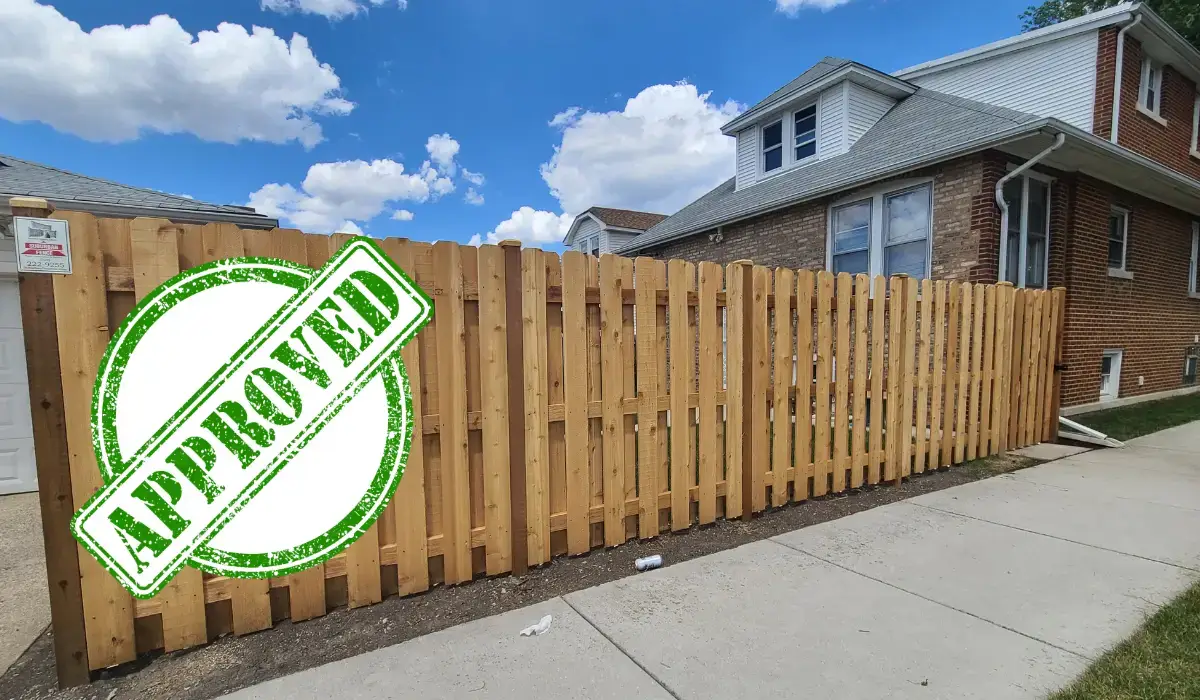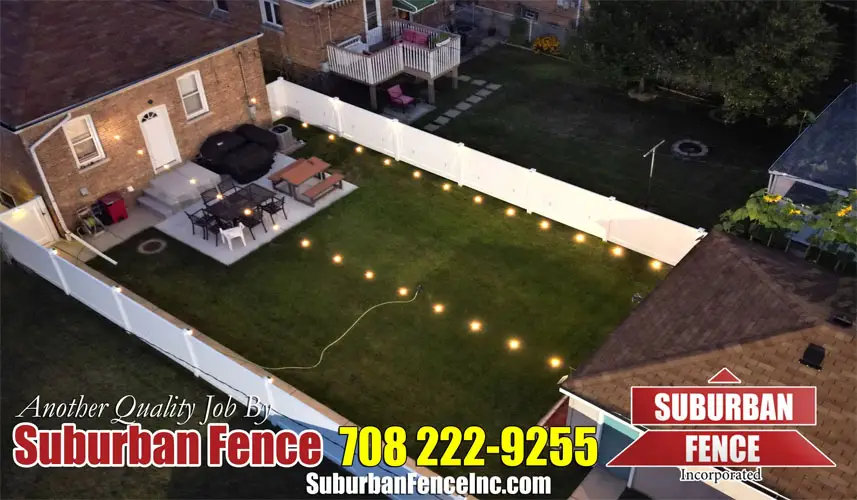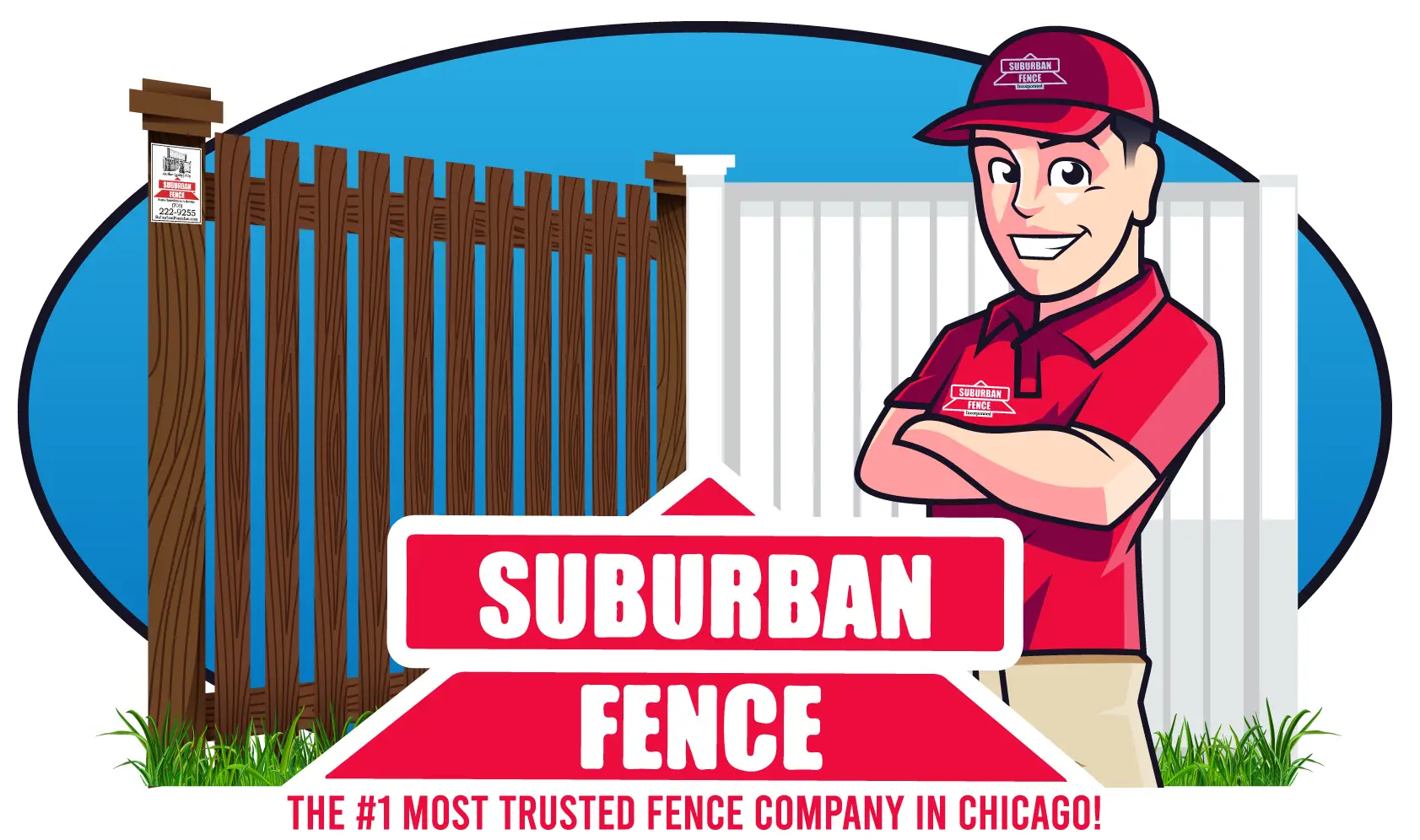
Is Your Fence Illegal? Understanding Chicago Fence Laws & Compliance
Chicago Fence Law: What Homeowners Must Know
Local regulations vary by neighborhood, property type, and fence material—making compliance more complicated than most homeowners expect. To avoid fines, project delays, or disputes with neighbors, it’s critical to understand how Chicago fence law affects your property before you build.
Backed by decades of local know-how, Suburban Fence Incorporated isn’t just another fence company—it’s a Chicago staple trusted since 1977. From navigating city codes to delivering seamless residential fence company Chicago services, our team makes compliance simple, not stressful. Read on for a complete breakdown of what it takes to stay on the right side of the law.
Thinking of building a new enclosure? Let our experts ensure it’s done right. Book a consultation to stay compliant and stress-free.
Common Chicago Fence Regulations Every Property Owner Must Know
1. Fence Height Restrictions by Property Type
Residential barriers in Chicago cannot exceed fence height limit Chicago of 6 feet, while commercial properties may allow higher barriers. Still, your build must follow chicago zoning fence rules, which cover placement, visibility, and materials based on property use—even when choosing the right privacy setup.
💡 Did You Know? According to the Chicago Department of Buildings, rule-breaking issues involving improper enclosure height are among the top three code issues reported annually for residential properties.
2. Property Line & Neighbor Disputes
One of the most common concerns in dense neighborhoods is who owns or is responsible for a barrier shared between properties. Who pays for a fence between neighbors in Chicago? In most cases, both parties must agree on design and cost if it’s a shared structure. You’ll also need to understand setback requirements to avoid accidentally crossing the property line.
💡 Pro Tip: To avoid future conflict, always document your agreement in writing—even if you’re on good terms with your neighbor.
If you’re wondering, is my fence legal in Chicago, the answer depends on whether it meets local code. Missteps in alignment can lead to expensive revisions.
3. Permit Requirements for New Setups
Installing an outer structure often requires approval. The permit requirements specify that any boundary over a certain height—or installed in specific districts—must go through the permit process. This is tied to the chicago building code section, which outlines acceptable materials, post depth, and foundation specs.
Skipping this step can result in stop-work orders and code violations that delay your entire project.
The permit process may seem daunting, but with a clear understanding of Chicago fence law, our team can manage the paperwork and approvals for you.
HOA Rules & Compliance for Residential Fencing
Many properties in the Chicagoland area fall under homeowners associations (HOAs), which can override city regulations with more specific guidelines. HOA rules may include style uniformity, height limitations, and distance rules, all tied to neighborhood aesthetics.
How HOA Guidelines Differ from City Regulations
While city of Chicago fence laws focus on safety and placement, HOAs enforce visual standards. A build legal under city code may still be rejected by your neighborhood board. Knowing both helps you avoid conflicts.
💡 Homeowners Tip: Before designing your structure, check your HOA’s CC&Rs (Covenants, Conditions & Restrictions) to avoid redesigns or rejections.
Materials & Colors That Are Allowed
Different HOAs have their own preferences. Some allow wood fencing but prohibit chain link fencing, and many restrict specific colors. Custom fence solutions can help meet these expectations. Understanding residential fence rules alongside city-approved materials and HOA preferences helps you avoid rejection and fines.
Materials such as vinyl and aluminum have become increasingly popular due to their durability and low maintenance. Over 40% of new residential barriers in the Midwest are now made of vinyl.
Steps to Get HOA Approval for Your Setup
Getting the green light involves sending your layout and material details, and often a formal request letter. Whether you’re installing vinyl fencing or aluminum and steel fencing, documentation is key. The HOA will review for meeting city rules with both internal and fence rules and regulations outlined in community covenants.
Involving your HOA early in the process prevents costly delays and helps maintain good relationships with your community board.

Consequences of Ignoring Chicago Fence Law & Fixes
If your barrier violates city code or HOA rules, you could face removal orders and official notices or fines. Worse, not following the rules can reduce property value or delay future sales.
Legal Fines & Forced Setup Removal
Failing to follow illinois fence laws may result in fines ranging from a few hundred to several thousand dollars, depending on the violation’s severity. The city may also order removal at your expense.
What is the rule for fences in Chicago? They must comply with building codes, setback lines, and zoning ordinances. Lack of required paperwork can’t be used as a defense.
According to city records, over 1,200 enclosure-related rule-breaking issues were issued in Chicago in 2023 alone—mostly due to permit neglect or property line errors.
Modify an Existing Setup to Meet Code
If you’re already in violation, solutions include reducing height, replacing materials, or shifting the structure to match code. Checking the best setup options can help. You may also need to remove unauthorized additions from neighbors.
💡 Pro Tip: A qualified contractor can often correct non-compliance issues faster and at lower cost than starting from scratch.
Suburban Fence Inc. Ensures Compliance
We don’t just install barriers—we help you avoid neighbor boundary dispute Chicago headaches, permit delays, and costly fixes. Our team navigates custom fencing services Chicago with a focus on compliance, quality, and transparency.
We also stay up to date on rules for fence on property line at the city and HOA level, making sure your project passes inspection the first time.
Our team includes experienced project managers, licensed installers, and local code experts, ensuring every step of your project is covered by professionals who know the local regulations inside and out.
Secure Your Property with a Compliant Fence Today
Understanding Chicago fence law isn’t just about staying within legal boundaries—it’s about protecting your property investment and avoiding expensive setbacks. From permit requirements to property line rules, the smartest move is to get things right from the start.
That’s why so many homeowners and businesses turn to Suburban Fence Incorporated, a trusted name in the Chicagoland area since 1977. Our team doesn’t just install barriers—we guide you through full Chicago fence installation with code compliance built into every step. Whether you need residential, commercial, or custom fencing services Chicago, we’ve got you covered.
If you’re considering a new project or making changes to an existing one, it might be helpful to speak with someone who understands the local rules inside and out. Requesting a FREE quote or calling (708) 222-9255 could be a great starting point.
Feel free to browse our gallery, check out the blogs, or connect with us on Facebook for real-world inspiration and updates. You don’t have to navigate compliance alone—support is just a click or call away.
